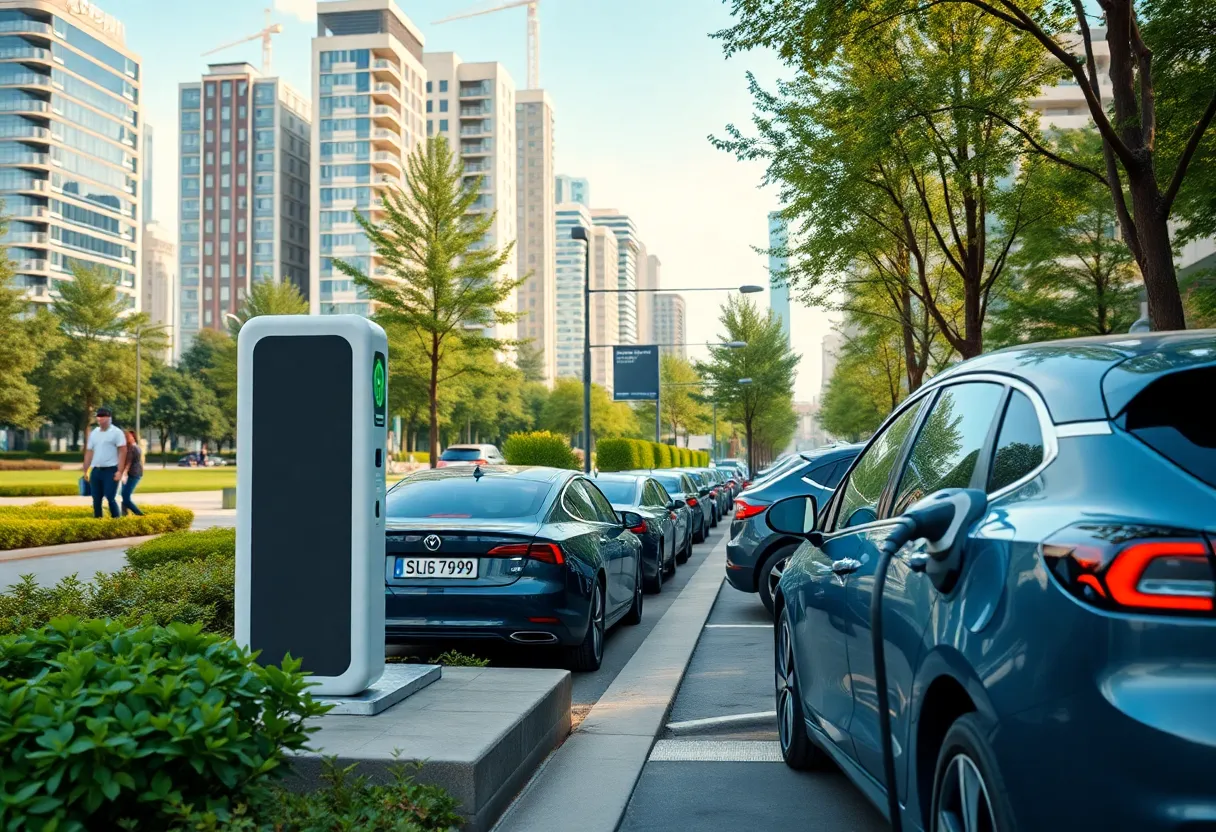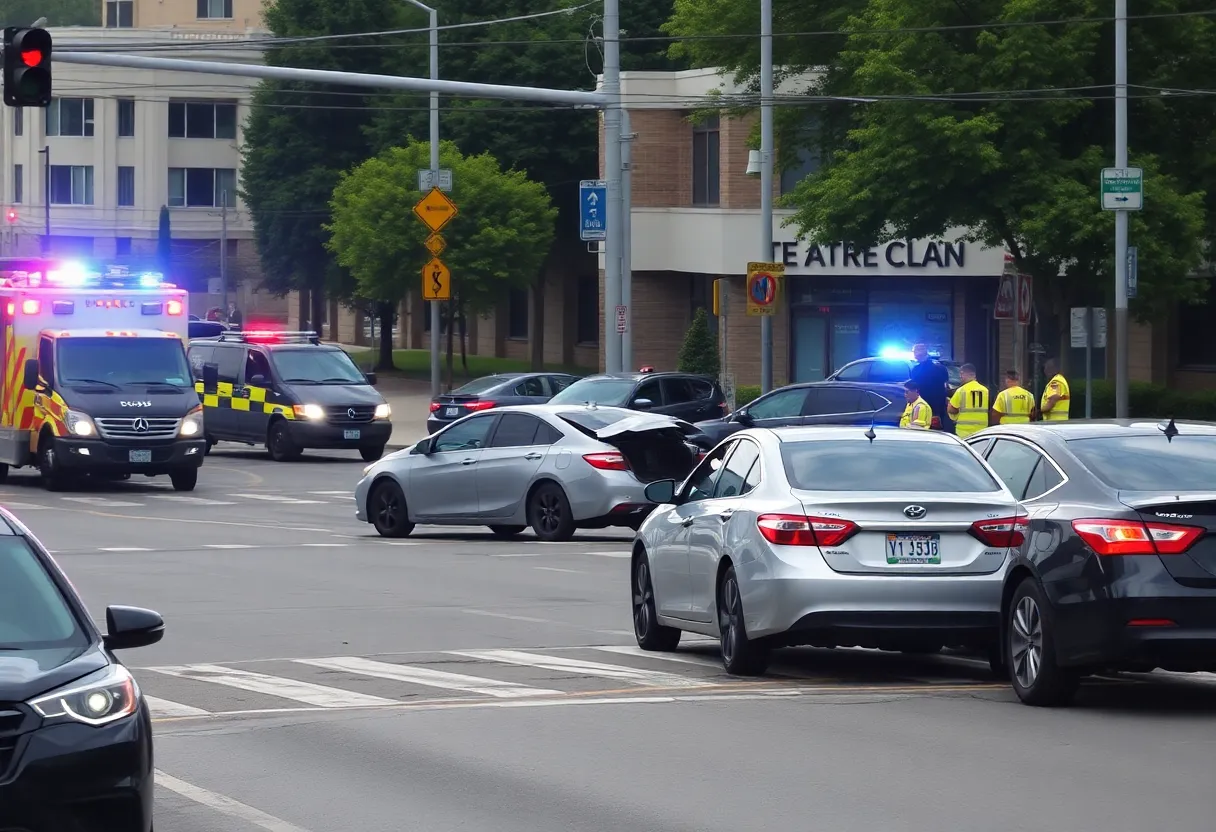News Summary
New York’s ambitious plan to phase out gas-powered vehicles by 2035 is encountering significant hurdles following a U.S. House vote to block California’s emissions rules. Supported by some lawmakers, this decision raises concerns for the state’s automotive sector and could impact electric vehicle adoption. New York has invested in incentives for electric vehicle purchases while aiming to establish a robust charging infrastructure. The dynamics of the electric vehicle market remain uncertain as stakeholders closely monitor developments affecting both consumers and industry workers.
New York State’s ambitious plans to enforce an electric vehicle mandate, which aims to eliminate the sale of gas-powered vehicles by 2035, face significant challenges following a recent vote by the U.S. House of Representatives. The House voted to block California’s ability to impose stringent emissions rules that parallel New York’s regulations, putting the future of the state’s clean transportation initiatives into question.
The U.S. House action follows New York’s adoption of California’s rules, which are designed to ensure that all new automobiles are free of fossil fuel emissions by the same year, 2035. This decision has raised concerns among various stakeholders in New York’s automotive and industrial sectors. U.S. Representative Nick Langworthy, who supported the House vote, has described the push for electric vehicle adoption as “nonsensical and dangerous,” warning that it threatens the livelihoods of dealerships and workers in the state’s automotive industry.
To further highlight the potential consequences, Langworthy previously led a bipartisan initiative urging Governor Kathy Hochul to reassess the electric vehicle sales mandate. He pointed out the risks of having unsold electric vehicle inventories and subsequent layoffs that could affect the workforce within the state’s automotive sector. The House legislation has been framed by Langworthy as a significant win for consumers, dealerships, and workers alike, with calls for the Senate to expedite the process for presidential assent.
In a bid to promote electric vehicle adoption, New York announced a $30 million incentive program earlier this year—a strategy that includes rebates for consumers purchasing or leasing electric vehicles. The Drive Clean Rebate program, in effect since its inception, offers point-of-sale rebates for over 60 electric vehicle models, alongside incentives aimed at assisting multifamily buildings and workplaces in implementing charging infrastructure.
Despite these efforts, the recent political developments could hinder New York’s goals for a cleaner transportation future. Governor Hochul has highlighted the state’s leadership in electric vehicle adoption and the importance of providing budget-friendly consumer options. To support this, she emphasizes the ongoing development of a robust infrastructure for convenient charging access as critical for the success of electric vehicles in the state.
In related initiatives, the City of Buffalo is taking steps to modernize its operations and reduce carbon emissions by purchasing four new electric vehicles, comprising two Chevy Equinox EVs and two Ford F150 Lightning EVs. The investment, totaling $202,974, is partially funded through grants from the New York State Energy Research and Development Authority (NYSERDA).
Furthermore, the electric vehicle supply chain sees a significant boost with the establishment of Ymer Technology’s new U.S. headquarters in Buffalo Grove. The company is making a $5.7 million investment, benefiting from state grants to bolster local manufacturing capabilities. Ymer Technology’s facility will focus on producing advanced cooling and thermal management systems for electric vehicles, contributing to Illinois’s burgeoning EV supply chain.
Illinois is making strides as well, with over 1,000 companies operating within its electric vehicle supply chain. The state has also committed upwards of $45 billion toward infrastructure improvements through 2025, supporting a green economy. Since 2021, significant investments have been made in renewable energy workforce training, totaling more than $180 million through the Climate and Equitable Jobs Act.
The developments in New York and surrounding states highlight the ongoing complexities and challenges in the transition to electric vehicles, amid political opposition and varying regional commitments to clean energy objectives. With the future of electric vehicle mandates at stake, stakeholders across the automotive industry and consumer markets will be watching closely to see how these legislative decisions unfold.
Deeper Dive: News & Info About This Topic
- Buffalo News: Biden administration standardizes EV charging
- Wikipedia: Electric Vehicle
- WKBW: City of Buffalo purchases electric vehicles
- Google Search: Electric Vehicles in New York
- WNYPapers: UB rolls out largest electric vehicle fleet
- Encyclopedia Britannica: Automobile
- WBUF: $9500 incentive for your electric car in New York
- Google News: Electric Vehicle Mandates
- Daily Herald: EV manufacturer opens headquarters in Buffalo Grove

Author: STAFF HERE BEVERLY HILLS WRITER
The Beverly Hills Staff Writer represents the experienced team at HEREBeverlyHills.com, your go-to source for actionable local news and information in Beverly Hills, Los Angeles County, and beyond. Specializing in "news you can use," we cover essential topics like product reviews for personal and business needs, local business directories, politics, real estate trends, neighborhood insights, and state news affecting the area—with deep expertise drawn from years of dedicated reporting and strong community input, including local press releases and business updates. We deliver top reporting on high-value events such as the Rodeo Drive Concours d'Elegance, the Beverly Hills artSHOW, Concerts on Canon, and holiday celebrations throughout the city. Our coverage extends to key organizations like the Beverly Hills Chamber of Commerce and Visit Beverly Hills, plus leading businesses in luxury fashion, hospitality, and entertainment that drive the local economy. As part of the broader HERE network, including HERELosAngeles.com, HERESantaAna.com, HEREHuntingtonBeach.com, and HERECostaMesa.com, we provide comprehensive, credible insights into Southern California's dynamic landscape.




